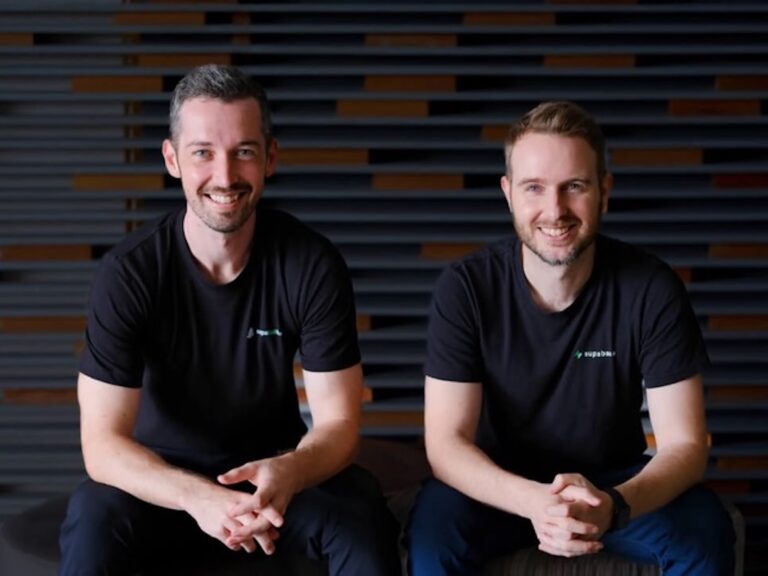
Similar Posts

DeepMind’s AI Outshines International Mathematical Olympiad Gold Medalists: A New Era in Math Competitions
Google DeepMind’s AI system, AlphaGeometry2, has excelled in geometry problem-solving, outperforming average gold medalists at the International Mathematical Olympiad (IMO). This advanced AI can solve 84% of geometry problems from the past 25 years of IMO competitions, emphasizing its potential in mathematical reasoning. Key features include the Gemini Language Model, a Symbolic Engine, and a Parallel Search Algorithm, which enhance its problem-solving capabilities. Despite challenges with certain problem types, AlphaGeometry2’s achievements suggest a promising future for AI in mathematics, highlighting the effectiveness of combining symbolic manipulation and neural networks in developing sophisticated systems.

Reid Hoffman Shares His Optimistic Vision for the Future of AI
In “Superagency: What Could Possibly Go Right With Our AI Future,” Reid Hoffman argues that AI can enhance human agency by providing better knowledge, job opportunities, and lifestyles. Co-authored with Greg Beato, the book promotes a balanced view of AI, emphasizing “smart risk-taking” over pessimism. Hoffman advocates for iterative deployment of AI tools, incorporating user feedback for safer innovations. He acknowledges AI’s impact on jobs, particularly in customer service, while highlighting its potential to boost productivity and create new roles. Addressing environmental concerns, Hoffman notes investments in sustainable energy by tech giants. The book encourages a balanced discussion on AI’s risks and rewards.

Unlocking the Future: Researchers Develop Shapeshifting Robots Inspired by T-1000 Technology
Researchers at UC Santa Barbara have developed small robots that can function as a cohesive collective, altering shape and transitioning between solid and fluid states, reminiscent of the T-1000 from “Terminator 2.” Led by Matthew Devlin, the team published their findings in Science, inspired by embryonic tissues. The robots feature motorized gears for movement, magnets for attachment, and photodetectors for command reception. Despite current limitations in size and power, the team aims to reduce the robots to 1-2 centimeters. The potential applications for these innovative robots span various fields, from medicine to search-and-rescue operations.

Apple’s Siri Revolution: Why a Truly Modernized Voice Assistant May Not Arrive Until 2027
Apple is working on revitalizing Siri amid the rise of generative AI, but a fully modernized version may not be available until iOS 20 in 2027. However, significant updates are expected sooner. A new Siri version, set for release in May, will introduce Apple Intelligence features. This update, described as having “two brains,” will manage traditional commands and handle advanced inquiries using user data. Dubbed “LLM Siri,” it will be showcased at the upcoming Worldwide Developers Conference (WWDC) in June, with a full launch anticipated in spring 2026. Future enhancements will focus on advanced capabilities post-launch.

Vibe Coding Fuels Supabase’s $200M Funding Surge, Boosting Valuation to $2B in Just Seven Months!
Supabase, an open-source database solution founded in 2020 by New Zealand’s Paul Copplestone, is gaining traction amid the rise of vibe coding expected in 2025. Recently, it secured $200 million in Series D funding led by Accel, bringing its valuation to $2 billion, following an earlier $80 million round. Supabase, which provides an alternative to Firebase, integrates the open-source SQL database Postgres with tools like authentication and auto-generated APIs, simplifying the setup process for developers. With over 1.7 million users and 81,000 GitHub stars, Supabase is becoming a preferred backend for AI applications, emphasizing scalability and ease of use.

Cloud Experts Unveil ConfigHub: The Ultimate Solution to End ‘Configuration Hell’
ConfigHub, a new company in cloud configuration management, has emerged from stealth mode with $4 million in funding. Founded by tech veterans Alexis Richardson, Brian Grant, and Jesper Joergensen, the company aims to alleviate “config hell,” which complicates software deployment and can lead to significant operational failures. ConfigHub intends to consolidate configuration management into a streamlined SaaS solution, initially focusing on Kubernetes DevOps tools like Helm and Terraform. As software complexity grows, effective configuration management becomes crucial, with the founders’ extensive experience positioning ConfigHub to transform the cloud industry and improve operational efficiency.
